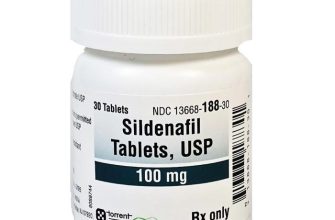Chewing Cialis significantly alters its absorption and can lead to unpredictable effects. Avoid chewing the tablet; swallow it whole with water.
The medication’s coating is designed for controlled release. Crushing or chewing compromises this, potentially causing a rapid increase in blood concentration. This sudden surge can increase the risk of side effects, including headaches, flushing, and low blood pressure. In some cases, more serious complications are possible.
If you experience chest pain, prolonged erection (priapism), or sudden vision loss after taking Cialis, seek immediate medical attention. These are serious side effects that require prompt treatment. Always follow your doctor’s instructions precisely regarding dosage and administration. Remember, improper use can compromise the effectiveness of the medication and potentially cause harm.
For any questions or concerns about Cialis, consult your physician or pharmacist. They can provide personalized advice based on your medical history and needs. Don’t rely on online information alone; always seek professional guidance.
What Happens if I Chew Cialis?
Chewing Cialis will likely result in a faster onset of action, but it also increases the risk of side effects. The tablet’s coating is designed for controlled release, and breaking it down by chewing bypasses this mechanism.
You may experience a more intense, potentially uncomfortable, increase in blood pressure and heart rate. The drug’s absorption is also unpredictable, meaning you might not get the consistent effect you’d receive by swallowing the tablet whole.
Here’s a breakdown of potential effects:
| Effect | Likelihood | Severity |
|---|---|---|
| Faster onset of action | High | Variable |
| Increased risk of headache | Medium | Mild to moderate |
| Increased risk of flushing | Medium | Mild to moderate |
| Increased risk of nausea | Low | Mild |
| Unpredictable drug absorption | High | Variable |
| Increased chance of experiencing side effects generally | High | Variable |
Always follow your doctor’s instructions for taking Cialis. If you have concerns about how to take your medication, discuss them with your doctor or pharmacist. They can provide personalized advice based on your health history and current medications.
Cialis’s Absorption and its Impact on Chewing
Don’t chew Cialis. The medication is designed for oral absorption as a whole tablet.
Cialis, tadalafil, is absorbed primarily in the intestines. Chewing the tablet alters this process. Here’s why:
- Increased Surface Area: Chewing increases the surface area exposed to saliva and stomach acid. This can lead to faster initial absorption, but also potential for uneven or incomplete absorption.
- Altered Drug Release: Cialis tablets have a specific formulation designed to release the medication over time. Chewing disrupts this controlled release, potentially causing a rapid spike in blood levels followed by a sharp drop, resulting in unpredictable effects.
- Taste and Irritation: The taste of Cialis can be unpleasant for many. Chewing intensifies this, potentially causing mouth irritation and making swallowing the tablet more difficult.
This unpredictable absorption can lead to:
- Increased Side Effects: Higher initial blood levels may increase the likelihood and severity of side effects such as headache, flushing, back pain, and nasal congestion.
- Reduced Effectiveness: Uneven absorption might decrease the overall efficacy of the medication.
- Uncertain Duration of Effect: The duration of the effect can be impacted, potentially shortening or prolonging its action.
Always swallow Cialis tablets whole with a glass of water, as directed by your physician or pharmacist. If you have questions or concerns about Cialis, consult your healthcare provider.
Potential Side Effects of Chewing Cialis
Chewing Cialis can increase the risk of certain side effects. The tablet’s coating helps regulate its absorption. By chewing it, you bypass this controlled release, potentially leading to a faster and more intense absorption of the active ingredient, tadalafil.
This accelerated absorption may result in a higher likelihood of experiencing common side effects like headache, flushing, nasal congestion, indigestion, back pain, and muscle aches. These are usually mild and temporary. However, the intensity could be greater than when swallowing the tablet whole.
More serious, though less common, side effects include sudden vision loss, hearing loss, prolonged erection (priapism), and heart problems. Seek immediate medical attention if you experience any of these.
Chewing also affects the taste and texture, making it less palatable for many. The bitter taste is intensified, and some individuals report a chalky texture that is unpleasant. This can make taking the medication less convenient.
Always follow your doctor’s instructions regarding Cialis usage. Never chew the tablet unless specifically directed by your physician. They can help you understand the risks and benefits based on your individual health profile.
Alternatives to Chewing Cialis: Proper Medication Intake
Swallowing Cialis whole with a glass of water is the recommended method. This ensures consistent absorption and avoids potential issues with uneven drug release.
If swallowing pills is difficult, talk to your doctor. They can explore alternative formulations like Cialis Once Daily, a lower-dose tablet taken regularly, or discuss other treatment options entirely. They might also suggest strategies for easier pill swallowing, such as using a pill crusher (only if explicitly approved by your doctor for this medication) to make the medication into a fine powder you can mix with applesauce or yogurt.
Never crush or chew Cialis without specific medical guidance. Altering the tablet’s structure can significantly impact the drug’s release and efficacy, potentially leading to unexpected side effects or treatment failure.
Remember to always follow your doctor’s instructions precisely concerning dosage and timing. This includes avoiding alcohol and grapefruit juice, which can interact with Cialis.
Always consult your doctor or pharmacist before making any changes to your medication regimen. They can offer personalized advice and help you find the best approach for your individual needs.
Seeking Medical Advice: When to Consult a Doctor
Contact your doctor immediately if you experience chest pain, irregular heartbeat, or sudden vision changes after chewing Cialis. These symptoms could indicate serious health problems requiring urgent medical attention.
Beyond Immediate Danger Signs
Schedule an appointment with your physician if you notice prolonged or painful erections (priapism) lasting more than four hours, even if other symptoms are absent. This condition requires prompt medical intervention to prevent long-term complications.
Addressing Side Effects
Persistent headaches, flushing, nasal congestion, or indigestion are common side effects, but contact your doctor if these are severe or don’t subside within a reasonable timeframe. He or she can help you manage these symptoms or adjust your medication.
Always discuss any new medications or supplements you’re taking with your doctor, especially those that interact with Cialis. This includes over-the-counter medications and herbal remedies.
Medication Adjustments
If Cialis is ineffective or causes intolerable side effects, contact your healthcare provider. They can discuss alternative treatment options or adjust your dosage to optimize results and minimize discomfort.




